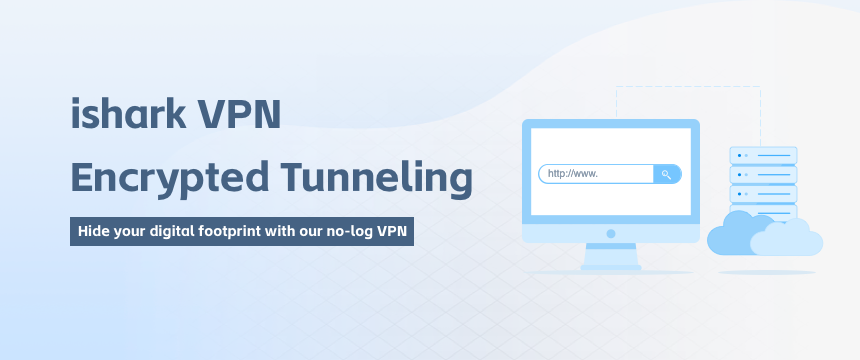VPN and Digital Identity Recognition Interplay: Balancing Security and Privacy
ishark blog article
In the digital era, digital identity recognition plays an increasingly crucial role in our lives. It involves linking individuals or entities with their online activities and is widely applied in e-commerce, social media, financial transactions, healthcare, and more. However, the widespread adoption of digital identity recognition also raises concerns about individual privacy and data security. Virtual Private Networks (VPN) are cybersecurity tools that can help protect digital identities to some extent. This article explores the intersection between VPN and digital identity recognition, with a focus on achieving a balance between security and privacy.

The Importance and Applications of Digital Identity Recognition
Digital identity recognition holds immense significance in contemporary society. In e-commerce, it ensures the authenticity and trustworthiness of buyers and sellers, reducing fraudulent transactions. Social media and online communities benefit from digital identity recognition by verifying users' true identities and mitigating fake accounts and malicious activities. In financial transactions and electronic payments, digital identity recognition is vital in preventing fraud and illegal transactions. In the healthcare sector, it protects patient privacy and ensures the security of medical data.
How VPN Safeguard Digital Identity Security and Privacy
A Virtual Private Network (VPN) is an encryption technology that establishes a secure tunnel between users and servers, ensuring that data transmission over the internet is encrypted and secure. VPN safeguard digital identity security and privacy through the following means:
Data Encryption: VPN use advanced encryption algorithms to encrypt user data, preventing it from being intercepted or tampered with during transmission.
Anonymity: VPN can conceal users' real IP addresses, providing online anonymity and enhancing digital identity privacy.
Bypassing Geographical Restrictions: VPN enable users to simulate different geographical locations, bypassing geographical restrictions to access specific websites and services, preserving users' digital identity freedom and privacy.
Preventing Data Leaks: VPN effectively prevent data leaks on insecure networks like public Wi-Fi, safeguarding users' digital identities from hackers and network attacks.
Evaluating the Feasibility and Effectiveness of VPN in Digital Identity Recognition
Evaluating the feasibility and effectiveness of VPN in digital identity recognition is critical. While VPN can enhance digital identity protection, they are not a one-size-fits-all solution. The evaluation process should consider the following factors:
Performance Impact: VPN encryption and decryption processes may introduce data transmission latency and reduce bandwidth, necessitating an assessment of its impact on digital identity recognition application performance.
Service Reliability: The reliability of VPN service providers directly impacts digital identity security. Ensuring the selection of trusted providers helps avoid data misuse or leakage during digital identity recognition processes.
Legal Compliance: In some regions, using VPN may be subject to legal restrictions, requiring an evaluation of VPN legality and compliance in digital identity recognition.
User Experience: VPN applications that prioritize user-friendliness enhance digital identity recognition acceptance and usage rates.
Addressing Security and Privacy Issues VPN may Raise in Digital Identity Recognition
While VPN can enhance digital identity recognition security and privacy, they may also pose certain security and privacy issues:
Trust in VPN Providers: Users must ensure the selection of trustworthy VPN providers to prevent data misuse or leaks.
DNS Leaks: Some low-quality VPN may lead to DNS leaks, exposing users' real IP addresses.
Logging Policies: Some VPN providers may log users' online activities, requiring careful examination of privacy policies.
Malicious VPN: Malicious VPN may steal personal information and digital identities, leading to security threats.

Future Prospects and Discussions on Balancing Security and Privacy
The future development of digital identity recognition will continue to intertwine with VPN technology. Achieving a balance between security and privacy requires taking the following measures:
Strengthening Regulation: Governments and regulatory bodies should enhance supervision of VPN service providers to ensure their legal operation and data protection.
Technological Innovation: Ongoing VPN technological innovations to enhance performance and security will meet the growing demands of digital identity recognition.
User Education: Raising awareness among users about digital identity protection and VPN security will enhance their vigilance against potential threats.
Collaboration and Sharing: VPN providers and digital identity recognition service providers should strengthen collaboration and information sharing to collectively address cybersecurity and privacy challenges.
Conclusion:
The interplay between VPN and digital identity recognition provides essential means for protecting digital identity security and privacy.
Evaluating the feasibility and effectiveness of VPN in digital identity recognition and addressing potential security and privacy issues will enable us to strike a balance between security and privacy.
Looking ahead, strengthening regulation, technological innovation, user education, and collaboration and sharing will play crucial roles in safeguarding the balance between security and privacy, ensuring the sustainable development of digital identity recognition.









